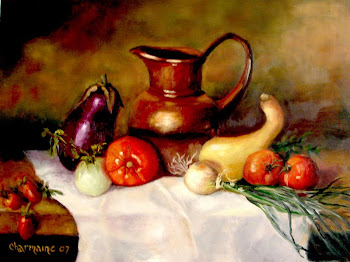I purchased “Villette” in 1987
after we visited the Bronte home in England.
Jane Eyre, the moors, the charming English countryside, the Bronte
family all enchanted me at that time but I never read the book.
After I got my ipad I
downloaded Free Books and an electronic version of the book. Studying Spanish and preparing for a mission
left me little reading time, but I started it anyway, planning to steal some
moments here and there. It took me over 4 months to read but on this P
Day I finally finished it.. It is my first experience reading a book this
way and I liked it. I especially liked the ease of marking passages and returning to them when I wanted.
Villette is the name of a
town in France. Lucy Stowe, a Young
Adult English girl, who has lost her family (We know not how) decides to
travel to France to make a life in a very daring, almost reckless
manner. But “Providence” is with her and
she says of that night after being taken in at a girl’s school:
“My devotions that night were all thanksgiving. Strangely had I been led since morning—unexpectedly
had I been provided for. Scarcely could
I believe that not forty-eight hours had elapsed since I left Longdon, under no
other guardianship than that which protects the passenger-bird—with no prospect
but the dubious cloud-tracery of hope.”
The owner of the school hires
her as a babysitter, in the beginning, and eventually she becomes a teacher.
The book actually begins with
an experience Lucy has with a little girl at the home of her Godmother when she
was 12 years old. Eventually elements of
this experience play out in the story.
Lucy often speaks directly to
the reader about her plight and it is hard not to have sympathy for her
situation. She is plain, and station is
so important in these societies.
“…my work had neither charm for my taste, nor hold on
my interest; but it seemed to me a great thing to be without heavy anxiety, and
relieved from intimate trial: negation
of severe suffering was the nearest approach to happiness I expected to know. “
There is a sweet spiritual
undertone in the story: “…take it to your
Maker—show Him the secrets of the spirit He gave—ask Him how you are to bear
the pain He has appointed—kneel in His presence, and pray with faith for light
in darkness, for strength in piteous weakness, for patience in extreme
need. Certainly, at some hour, though
not your hour, the waiting waters will stir; in some shape, though perhaps not
the shape you dreamed, which your heart loved, and for which it bled the
healing herald will descend…”
And so goes the life of this
young woman as her faith is tried many times.
I liked what she said of people in her life: “There are people from whom we
secretly shrink, whom we would personally avoid, though reason confesses that
they are good people: there are others
with faults of temper, &c., evident enough, beside whom we live content, as
if the air about them did us good.”
This is perhaps her thesis with
the characters in the story, who touch her life. Lucy has a sad unrequited love for the young
Dr., summoned to care for the children. There
are twists and turns with his life and identity as it plays out with hers. His relationship is important as it shows her
that she is interesting and has value.
“I see that a great many men, and more women, hold
their span of life on conditions of denial and privation. I find no reason why I should be of the few favored. I believe in some blending of hope and
sunshine sweetening the worst lots. I
believe that his life is not all; neither the beginning nor the end. I believe while I tremble; I trust while I weep.”
Halfway through the book the
story changes and focuses on Lucy’s relationship with M. Paul, a fellow teacher
at the school. He is a dark, curmudgeon of
a Spaniard. He fascinates and
exasperates her. She learns a lot about
judging, accepting, seeing the good in others from him. She
actually begins to see him differently as the story moves on. The development of this relationship
surprised me.
There is mystery and some
surprises and a little supernatural. The
writing is beautiful and poetic. If I
have a complaint it is that there was too much French dialogue and I know not a
lick of French and felt I was missing some things.
I am surprised that the
British have never made this into a movie.
I think it has elements that would work well. This is a long book and perhaps not for
everyone as it is somewhat psychological and moves rather slowly, but I liked
it a lot. ****







